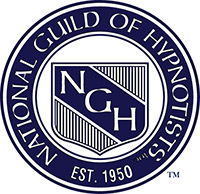In recent years, the benefits of hypnosis have become increasingly recognized as an incredible tool for personal transformation and self-improvement. By diving deep into the subconscious mind, hypnosis has the power to unlock positive changes and assist individuals in overcoming a wide range of challenges.
If you’re having a hard time grieving the loss of a loved one, are tired of dealing with never-ending anxiety, or even looking for a tool to help you quit smoking, hypnosis just might be the answer you are looking for!
A skilled hypnotherapist acts as a knowledgeable guide by your side who helps you explore the underlying causes of your struggles. Whether you’re dealing with anxiety, weight issues, grief, smoking or alcohol dependence, and many other concerns, hypnosis provides a welcoming space for you to navigate emotional blockages.
Through guided hypnotherapy, you can start to reframe negative thought patterns and cultivate empowering beliefs that open doors to lasting transformation. Let’s explore some of the benefits of hypnosis and its potential to alleviate anxiety, weight loss, grief, smoking cessation, alcohol cessation, and more!
Anxiety can be debilitating, affecting every aspect of life. Hypnotherapy offers a gentle and effective approach to managing anxiety by addressing its underlying causes. Through deep relaxation and guided suggestions, hypnosis helps individuals access their subconscious mind, where they can reframe negative thought patterns, reduce stress, and cultivate a sense of calm. Studies have found that hypnosis significantly reduced anxiety levels in patients compared to those who received traditional therapy alone.
Struggling with weight loss can be a frustrating and complex journey. Hypnosis can be your ally in achieving sustainable weight loss by addressing the root causes of unhealthy eating habits and promoting positive behavioral changes. By working with the subconscious mind, hypnotherapy can enhance motivation, boost self-esteem, and reprogram patterns of emotional eating.
Grieving the loss of a loved one is a deeply personal and challenging experience. Hypnotherapy can provide a supportive environment for individuals to process their grief, find solace, and gradually rebuild their lives. Through guided visualization and accessing positive memories, hypnosis can help individuals find comfort, release emotional burdens, and foster a sense of closure.
Smoking is a powerful addiction that can have severe health consequences in the long run. Hypnotherapy has been shown to be an effective method for smoking cessation, aiding individuals in breaking the cycle of addiction and freeing themselves from tobacco dependence. By targeting the subconscious mind, hypnosis can help reframe the perception of smoking, reinforce motivation to quit, and reduce withdrawal symptoms. Studies have demonstrated that hypnosis can be more effective in smoking cessation compared to counseling alone.
Alcohol dependency can wreak havoc on one’s physical and mental well-being. Hypnotherapy offers a comprehensive approach to alcohol cessation by addressing the deep-rooted patterns and triggers associated with addiction. Hypnosis can help individuals overcome cravings, build new coping mechanisms, and cultivate a positive mindset conducive to a sober lifestyle.
Stress has become an unavoidable part of our modern, fast-paced life. The consequences of unchecked, chronic stress levels can have several negative effects on your health. Hypnotherapy provides powerful stress management techniques by promoting deep relaxation, enhancing coping strategies, and fostering a sense of inner balance. By working directly with the subconscious mind, hypnosis can alleviate stress-related symptoms, improve sleep quality, and enhance overall well-being.
That’s right! The benefits of hypnosis extend past psychological challenges and have shown promising results in pain management as well. Through hypnosis, individuals can learn to modulate their perception of pain and gain greater control over their physical well-being. Studies have shown that more than 75% of people with arthritis and related diseases experience significant pain relief using hypnosis. So if you’re seeking a natural way to manage your pain, hypnosis might just be the answer you’ve been looking for!
Hypnosis is a versatile and evidence-based approach that can support individuals in their journey toward holistic well-being. By harnessing the power of the subconscious mind, hypnotherapy has shown remarkable benefits in areas such as anxiety relief, weight loss, overcoming grief, smoking cessation, alcohol cessation, and stress management.
If you are ready to unlock your full potential and reap the benefits of hypnosis, we invite you to fill out our confidential intake form here and take the first step towards a happier, healthier future.
References:
Hammond, D. C. (2010). Hypnosis in the treatment of anxiety- and stress-related disorders. The American Journal of Clinical Hypnosis, 53(4), 261-274.
Kirsch, I. (1996). Hypnotic enhancement of cognitive-behavioral weight loss treatments: Another meta-reanalysis. Journal of Consulting and Clinical Psychology, 64(3), 517-519.
Bryant, R. A., Moulds, M. L., Guthrie, R. M., & Nixon, R. D. (2005). Hypnotherapy and cognitive behavior therapy of acute stress disorder: A 3-year follow-up. Journal of Consulting and Clinical Psychology, 73(2), 330-336.
Ahijevych, K., Yerardi, R., & Nedilsky, N. (2000). Descriptive outcomes of the American Lung Association of Ohio hypnotherapy smoking cessation program. International Journal of Clinical and Experimental Hypnosis, 48(4), 374-387.
Kirsch, I. (1994). Hypnotic enhancement of cognitive-behavioral treatments for smoking: Another meta-reanalysis. Journal of Consulting and Clinical Psychology, 62(4), 689-695.
Jensen, M. P., Adachi, T., Hakimian, S., Sherlin, L. H., Fregni, F., & Howe, J. D. (2017). Improvements in pain catastrophizing, global perceived effect, and multiple areas of functioning after hypnosis treatment in a clinical trial for postoperative pain. Journal of Alternative and Complementary Medicine, 23(4), 259-269.







